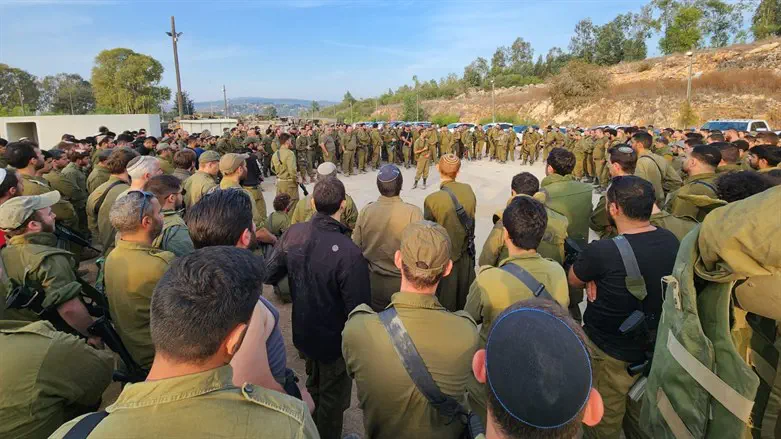
The Ministry of Defense has published a first draft of a law aimed at extending reservist service for some soldiers.
Accordingto Kan, the memorandum of law is intended to extend the period during which reservist service for soldiers in combat units, allowing soldiers to be called to serve until the ages of 41, 46, or up to the age of 50 depending on the role.
The ministry justifies the proposal by stating that, "The IDF found that it cannot rely on the volunteering of individuals for service, as this reliance does not allow the necessary certainty for planning manpower to fulfill operational tasks during combat."
An additional draft order published by the Ministry of Defense includes an order renewed every three years that defines for some military professions a higher exemption age from reserves - which is 45 or 49, depending on the profession.
The regulations are set to expire at the end of June. Before then, the Ministry of Defense seeks to add additional professions where the reservist service will last for three years, including UAV pilots, Civil Administration officers, personnel in the Merkava tank maintenance and operation system, and technicians for maintaining the "Eitan" APC.
Additionally, the order will expand the requirement for extended reservist service by identification and burial officers and prisoner investigation officers. The order states that "the need arises from the large number of casualties that requires preparation in a short time frame, as well as due to the increase in prisoner investigation activity."
On Monday night, the Knesset approved the application of the continuity rule to the recruitment law that is intended to exempt haredim who use the "Torah is their profession" exemption from IDF service.
Sixty-three members of Knesset voted in favor of the proposal, and 57 voted against it, including Defense Minister Yoav Gallant. Except for Gallant, all coalition members ultimately voted in favor of the proposal.
The proposed law will be returned to the Foreign Affairs and Defense Committee for further preparation for the second and third readings.
The approval of the proposal will allow the coalition to advance the bill proposed by MK Benny Gantz in the previous Knesset regarding haredi conscription and to continue the legislative processes from where they were halted in the previous Knesset.
In this way, the government may bring the proposed law for Knesset approval in a short time in the second and third readings.
The proposal stipulates that the status of yeshiva students will be regulated, thousands of haredim will be recruited annually, and haredi yeshivas will continue to enjoy state funding.

